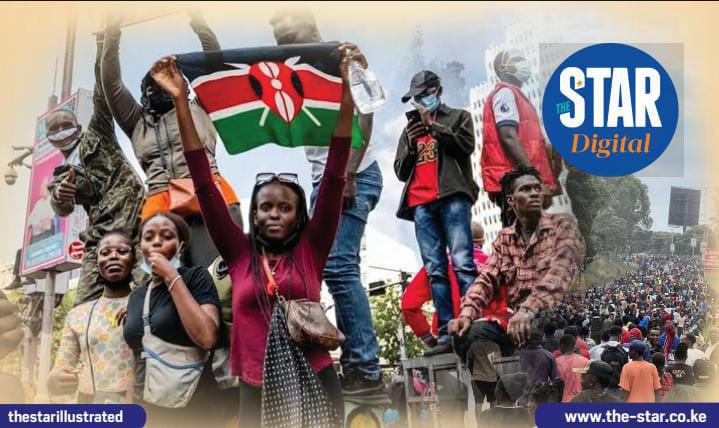

When I first heard that the government had announced a
compensation team led by Prof Makau Mutua for victims of protests, my heart was
torn between cautious optimism and deep unease. Yes, compensation matters. Yes,
the families need financial relief. But what about justice? How can we speak of
payouts while the killers – police officers who pulled the trigger on unarmed
patriots – walk our streets free, unbothered and in most cases, still in
uniform?
Over the past year, I have sat with mothers whose tears could drown the conscience of a nation, if we had one that is. I have listened to siblings who still wait for answers that never come. I have stood in cramped living rooms where portraits of the dead are propped against walls, not because the family is ready to honour their memory, but because they are still struggling to accept that the memory is all they have left.
The brutal truth is that compensation is not the first step in justice. It is among the last. The proper path is clear and known to all:
1. Acknowledgment: an official, unequivocal recognition that those killed were neither treasonous criminals nor terrorists, but patriots who stood for a better Kenya.
2. Apology: a sincere and public expression of remorse from the state
that pulled the trigger, not just a press release drafted in political
language.
3. Arrest and prosecution: the killer cops, their commanders and anyone complicit must face the law. No immunity, no excuses.
4. Compensation: only after the above can we truly speak of closure through financial restitution.
5. Security reforms: to ensure what was witnessed does not recur.
It should not be hard to implement the above. It is what the country needs to come to terms with the wanton murder of its youth.
I remember one of the hardest times of my life was when I had to escort mothers and wives to the cold rooms of mortuaries across the country to identify bodies of their sons and husbands. The walk was long but the silence was longer. No one spoke. No one cried until the sheet was pulled back and then… a wail that could shake the heavens. These were men and women who had kissed their loved ones goodbye in the morning, never imagining that that was their final goodbye.
With Hanifa Adan, we visited survivors in hospital. We saw young men with limbs amputated, lying in pain, their futures permanently altered because someone in uniform decided their lives were expendable. Some stared blankly at the ceiling, others looked at us with eyes that asked the one question I still cannot answer: Why?
Yet, here we are, speaking of compensation before justice. I cannot ignore the sinking suspicion that could this be an attempt to close the chapter without telling the story? To sweep the truth under a rug woven from taxpayer money? I hope not. I hope Prof Makau will not let this be.
It will be absurd and outrageous to cut a cheque while the murderers remain armed and employed. This is not just about individual grief, it’s about national accountability. We must demand that before a single shilling is paid out, in the minimum, a process is started of getting the killers behind bars. Without that, we risk normalising state executions and telling future regimes, “You can kill, then pay, and all will be forgiven.”
Even with acknowledgment, apology, arrests and compensation, we must go deeper. The killings during the Gen Z protests are not an isolated tragedy. They are the predictable result of a security sector rooted in colonial architecture. Our police service still operates with the logic of occupation – to control, to suppress, to intimidate. The uniform has changed colour over the decades, but the institution’s abhorrent soul remains untouched.
Kenya must commit to total security sector reform. That means dismantling the current police structure entirely. Replace the colonial-era National Police Service with a new entity built on trust, community partnership and democratic values. Give it a new name, a new uniform and most importantly, new personnel. Without this, every reform will be cosmetic and the cycle of extrajudicial killings will return with the next wave of protests.
The Gen Z victims did not die so that we could negotiate the price of their blood. They died demanding a Kenya where human rights are not theoretical clauses in the constitution but lived realities. We owe it to them, to their families and to the generations to come to make sure their deaths change the system forever.
Prof Makau’s team carries an immense responsibility. If they focus only on compensation, history will record them as undertakers of justice. However, if they centre truth, accountability, justice and reforms, they will be remembered as architects of a new Kenya.
The families I have met do not ask for much. They ask for answers, for accountability, for justice and dignity. They ask that their sons and daughters be remembered not as victims, but as heroes. They ask for a country where no mother has to walk into a mortuary to identify a child killed by the people sworn to protect them.
We can give them that. But only if we choose justice before payouts, truth before silence and reform before comfort.













